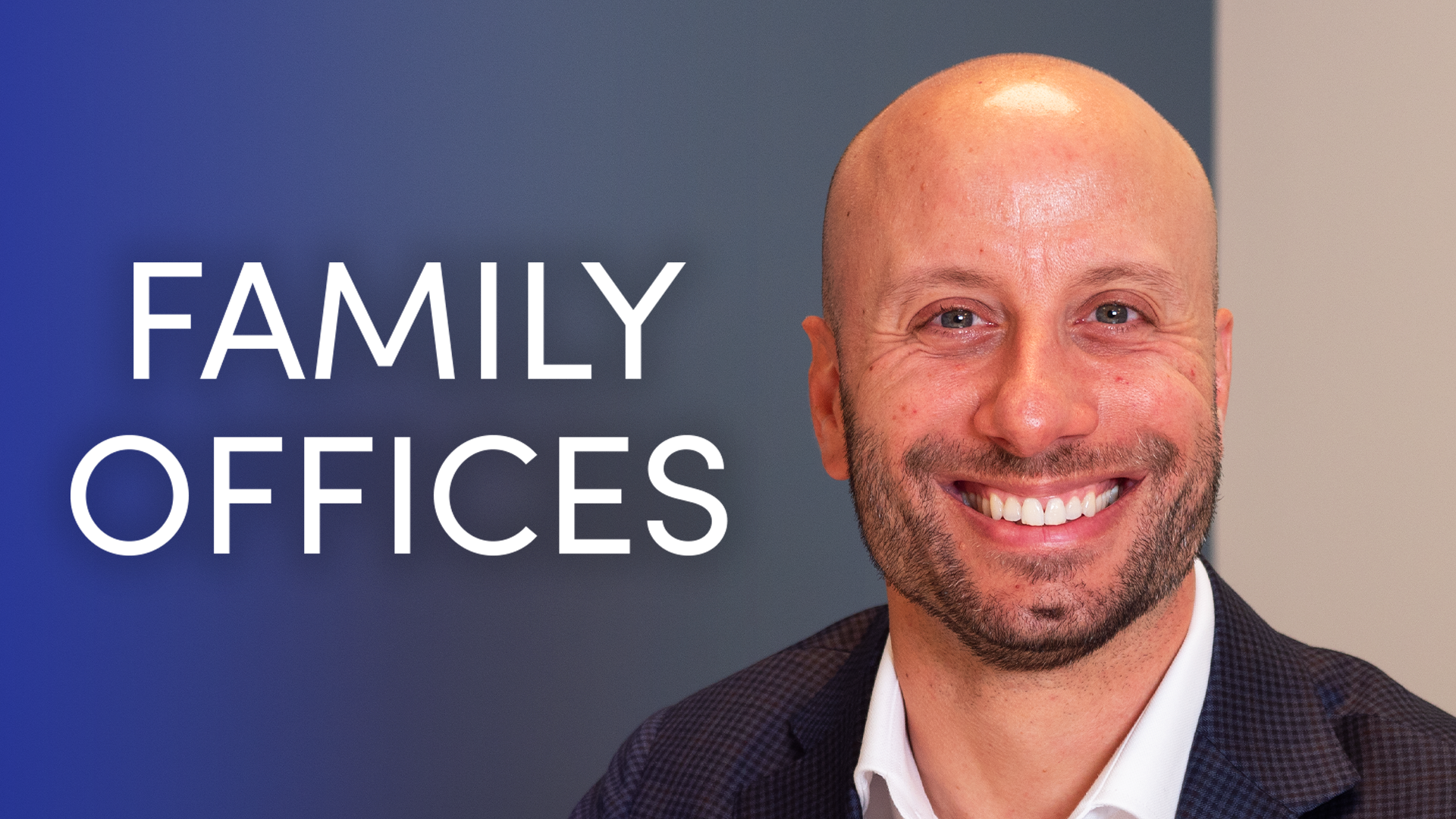Hi, I’m Romina Maurino, the editor of the Financial Pipeline, and as part of the Financial Pipeline Expert series, we’re here today to talk with Dan Riverso of Jesselton Capital Management about the Canadian Family Office landscape. So what do you do?
Most of my experience has been in family office. I started my career there at a firm called I3 Advisors, and that led me to basically developing my own family office with two of our clients, which then led to Jesselton. And Jesselton is basically a family office service provider to one of Canada’s wealthiest families. We help to facilitate basically an objective of theirs, and it has been about five years in the making, and we’ve sort of just been plugging along on that, so. What is the purpose of a family office?
It really depends on sort of how the family made their wealth, what their objectives are, whether it’s to grow their wealth or capital preservation or to pass money on to the next generation, and every single family has a different objective. And when you start speaking with families, you can start to sort of flush those out, and then you start figuring out, okay, maybe we should discuss this a bit more. How can we help you achieve that goal? So it’s not necessarily just investment-type options. We can do structuring or we can do educational family governance, we can help with business governance, and if not, we bring in investors, or not investors, outside third parties, professionals to help with essentially achieving their objectives.
How do you develop a family office?
Most families typically, as they go through the journey of developing a family office, they start realizing that they hit roadblocks, and it could be anything from accounting to maybe custody of their assets, to bringing the kids into the conversation. So there’s a lot of sort of milestones, I guess you could call them, as you go through developing a family office, and at those different milestones they might have questions. And so through my career I’ve helped basically families answer those questions and sort of move them to the next level
Which families need a family office?
The general rule of thumb is about $100 million for a family. So a family’s built wealth over a number of generations, they sort of hit that mark and they start to realize that maybe we should bring all this in-house because now we have more family members to worry about. It’s become more complex. I mean, if you sort of look at the life cycle of a family office, I’ll give you an example of home builders or a construction company. You know, they start off building one house, then it’s two, then it’s eight, right? And as they’re going through that progression, they’re dealing with their local banker or their accountant. But as they start moving into, say, condo development and they start generating more revenue and the generations sort of grow, so it’s not just the husband and wife anymore. Now they’ve got 15 grandkids that they have to have to worry about, whatever, whatever the number is, they have to start thinking a bit bigger. And because of that, it sort of leads to the conversation of perhaps maybe we should move away from the bank, find somebody who specializes in family office, and then the next sort of graduation point is maybe we know about family office to an extent and we’ll develop our own family office that meets our specific needs.
How does a family office grow?
In Canada, in our industry, you can graduate. I mean, most people just very basically graduate from the teller to the private banker at the bank to an investment advisor, then to an asset manager, then to a multi-family office, and as they go through that progression, there comes a point where they’ve sort of learned enough and they realize that maybe they need just to bring it all in-house, right? To hire people that they trust, and, I mean, that’s a big thing in family office, hiring people that you truly trust. Those people essentially become part of the family. I mean, even in my experience, I still speak with my old clients because we have a relationship, but it’s the realization that maybe that multi-family office doesn’t really meet our needs. Because when you look at multi-family offices across Canada, they do specialize. Some are financial planners, some are investment people, some are tax people, et cetera, et cetera. It’s very hard to bring them all into one sort of bucket. There’s some family offices, most are multi-family offices, that do it generally okay, but it’s really not like the traditional European family offices. Now, keep in mind, European family offices have 500 years or more of sort of experience in this. In Canada, it’s still relatively new. We’re talking only a couple of generations of family offices, so to an extent, we’re still sort of learning and developing here in Canada. How old is the idea of a family office in Canada?
I’m sure there’s probably a couple, but it’s probably maybe 75 to 100 years old, maybe around there. I mean, there are some older families in Canada, but it’s really a European type of idea because they’ve gone through multiple generations. I mean, you look at the royal family as an example in England, if you’re watching the Crown. You know, they sort of detail, if you watch the show, how things get sort of passed on from generation, how decisions are made and and so on and so forth. So it is an example, but arguably they’re the pinnacle of family office to an extent.
What are the generational issues that arise?
I mean, there’s obviously a number. The first one that comes to mind is the operating business. Is there an operating business? Is there somebody that wants to take it over? If they don’t want to take it over, do you sell off the business? So there’s sort of the first decision. If the operating business has been sold off and now it’s just a large investment portfolio, how is that structured? You know, if the younger generation wants to come in, how do they want to be involved? Do they wanna be looking at individual investments? Do you bring them on as member of the investment committee just to be sort of a, help with the decision making but not the actual due diligence of investments? So there’s various ways you can sort of structure it and bring in sort of the next generation, and it might not just be on the investment side of things. If you have a large portfolio, what about charitable giving? Some members might want to come on and basically just handle the charitable giving aspect of the portfolio. So if they’re carving off, say, 5% a year, it’s a $100 million portfolio, that’s $5 million a year. I mean, it’s a full-time job to actually manage that level of charitable giving, to meet different charities, decide how you want to position it, what type of causes you want to support, et cetera. So there’s many ways that the younger generation can be involved in family office.
What are the differences that occur between generations?
Society changes, and the views of the younger generation changes over time with society. I mean, we obviously have gone through a major shift over the past 50 years or so. Younger people today are more aware. They’re on social media, they’re more socially conscious. They might be, let’s use a bit maybe of an extreme example. The family’s wealth was built up in oil and gas and the grandchild is an environmentalist. You know, how do you reconcile those two things? So the values can differ from generation to generation. A lot of it, it really comes down to stewarding to understand sort of how the wealth was built and then with advisors or with family members discuss what’s sort of the long-term plan of this capital. And if somebody does want to sort of break rank, how do you facilitate the wishes of that person? Do you split off part of the portfolio or do you give them a certain aspect of the portfolio to manage? You know, it can be done in a variety of ways to sort of basically address the wants of every individual of the family for that wealth.
So a family office doesn’t just grow wealth?
Yeah, it’s not so much just about managing and growing the money or protecting the capital. It’s what do you do with that money, right? Who’s involved? How do you foresee that money being distributed amongst generations? Because families are pyramids and they grow with every additional generation. You sort of need that leader in the family, whether it’s the patriarch or the matriarch. That person should set the tone for the family, set the vision for the family, and then work with advisors and their children and their children’s children to basically chart that course. Typically where families go off the rails is because there’s no governance at the family, and you really need someone to take the lead on that to ensure that it is charted in the right direction.
How does the family office help the family plan in the long-term?
Most families are actually quite good at that because they’ve built businesses, and building a business, you need a bit of a long-term view. But when you start getting into the generations that weren’t involved with the business, they might lose that perspective a bit, and that’s where outside advisors are there to help. What are the key misunderstandings between generations?
Living in different times, perhaps, different perspectives on the world. When it comes to the wealth, they might have different objectives for it, right? Warren Buffet still lives in a small house and drives his Buick or whatever old car he drives, but it’s, his kids might wanna live a bit more of an opulent lifestyle, and how do you reconcile that? I mean, Jackie Chan is is an example of someone who said I’m not gonna leave anything for my kids. I want them to earn it on their own. So it’s really about sort of perspective and how you want to set up the next generations and sort of mapping it out, bringing them into the process, ensuring they understand how the wealth was built and the purpose of that wealth going forward.
That’s great. Well, thank you so much for being with us today.
Of course, my pleasure.





